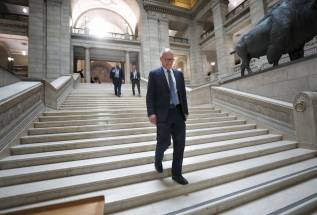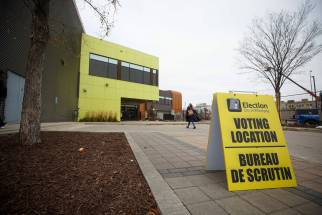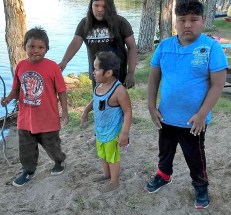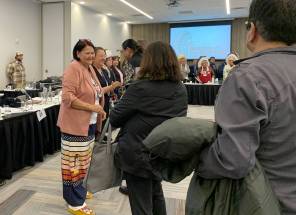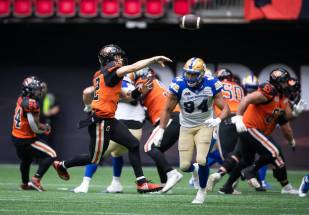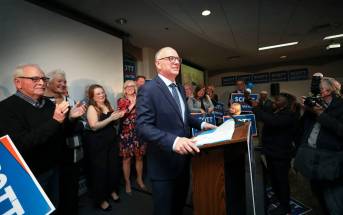A safe bet Voters backed fumble-free Gillingham after allegations sank Murray
Read this article for free:
or
Already have an account? Log in here »
To continue reading, please subscribe:
Monthly Digital Subscription
$0 for the first 4 weeks*
- Enjoy unlimited reading on winnipegfreepress.com
- Read the E-Edition, our digital replica newspaper
- Access News Break, our award-winning app
- Play interactive puzzles
*No charge for 4 weeks then price increases to the regular rate of $19.00 plus GST every four weeks. Offer available to new and qualified returning subscribers only. Cancel any time.
Monthly Digital Subscription
$4.75/week*
- Enjoy unlimited reading on winnipegfreepress.com
- Read the E-Edition, our digital replica newspaper
- Access News Break, our award-winning app
- Play interactive puzzles
*Billed as $19 plus GST every four weeks. Cancel any time.
To continue reading, please subscribe:
Add Free Press access to your Brandon Sun subscription for only an additional
$1 for the first 4 weeks*
*Your next subscription payment will increase by $1.00 and you will be charged $16.99 plus GST for four weeks. After four weeks, your payment will increase to $23.99 plus GST every four weeks.
Read unlimited articles for free today:
or
Already have an account? Log in here »
Hey there, time traveller!
This article was published 27/10/2022 (1137 days ago), so information in it may no longer be current.
Scott Gillingham won the crowded field in Winnipeg’s dramatic mayoral election thanks to two things: a strong and consistent campaign, and workplace harassment allegations against front-runner Glen Murray.
The allegations, relating to Murray’s time as executive director at the Alberta-based Pembina Institute, were “catastrophic” for the former mayor, and a turning point in the contest, said Christopher Adams.
“(They) were devastating for the campaign,” said Adams, adjunct professor of political studies at the University of Manitoba.
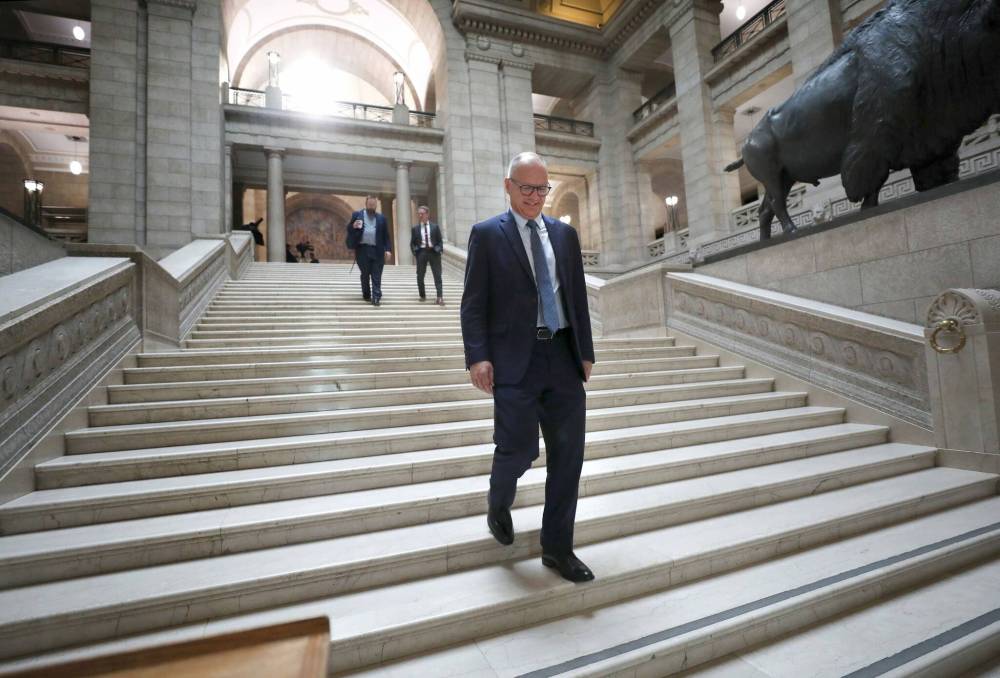
Gillingham, a two-term city councillor for St. James, won a nail-biter with 27.54 per cent of Wednesday’s vote, a weak mandate amid poor voter turnout of 37 per cent.
Murray, who led all public opinion polls before voters chose from 11 candidates for mayor, was second with 25.29 per cent.
They were separated by just 4,391 votes.
At his Osborne Village campaign office Thursday, mayor-elect Gillingham told the Free Press his promises resonated with Winnipeggers, his costed plan brought credibility and the efforts of more than 200 volunteers helped propel him to victory.
He embraced the underdog role.
“It sounds cliché, but we campaigned like we were two or three points behind, or 10 points behind,” the former finance committee chair said.
Gillingham acknowledged the Pembina allegations, which emerged Sept. 29, affected the race.
“Glen’s support really seemed to plummet after that story came out,” he said.
Some of Murray’s former employees at the think tank accused him of sexual harassment and poor management, which he denied.
Gillingham believes the allegations and the announcement of his “big move” plan, which includes an extra $50 million for road repairs and more frequent Winnipeg Transit service, led to a “swing.”
“We started to feel the momentum in and around that time,” he said.
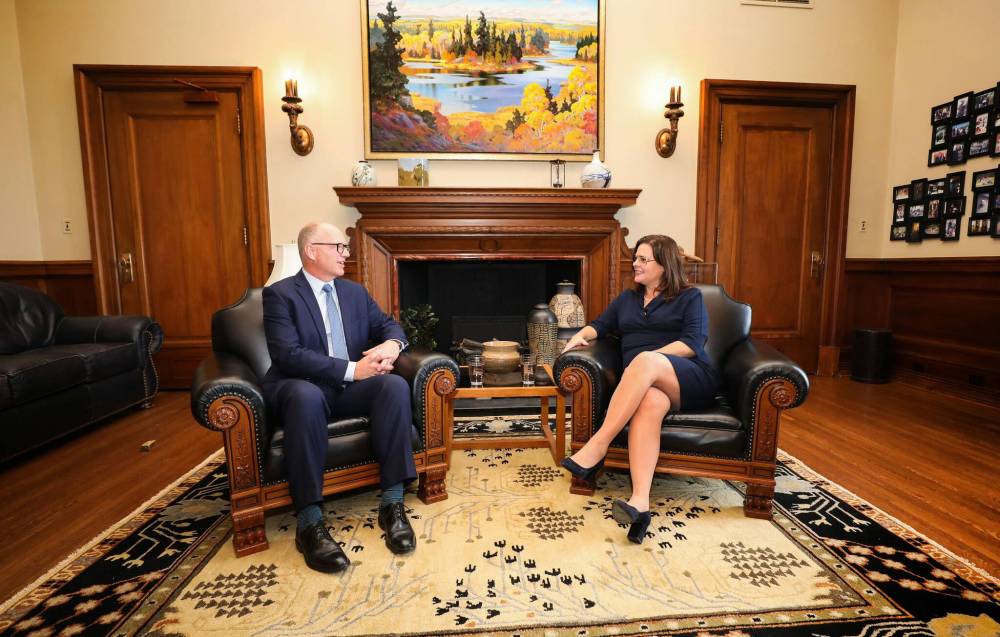
Gillingham has promised to raise property taxes by 3.5 per cent in each of the next four years and add $1.50 per foot to frontage levies in 2023 to raise $280 million for infrastructure projects.
He cited homelessness, addiction and crime among the critical issues he wants to address as mayor.
Gillingham and the city’s 15 councillors will be sworn in at an invitation-only inaugural meeting Tuesday, said Marc Lemoine, deputy city clerk and senior election official.
One of the incoming mayor’s first acts was meeting Premier Heather Stefanson at the legislature on Thursday.
“We share a lot of the same priorities,” Gillingham said outside the premier’s office. “I’m talking about the downtown and safety of the downtown. We talked about investment in CentrePort and the potential there. I’m looking forward to a good relationship.”
As he got to work, the autopsy of the election results was in full swing.
Adams believed the suburbs “really delivered” for Gillingham, with many voters regarding him as a safe choice.
“That is, somebody who wasn’t going to take the city in a radically different direction,” said Adams. “(He) ran a fairly solid campaign without any mistakes or stumbles.
“He spoke to the centre, usually, in his campaigning, rather than to the right or to the left.”
In July, a Probe Research poll suggested Murray, who benefited from name recognition given his time as mayor from 1998 to 2004, had a lead of 28 percentage points over Gillingham.
A second poll suggested the gap was narrowing before the Pembina claims surfaced.
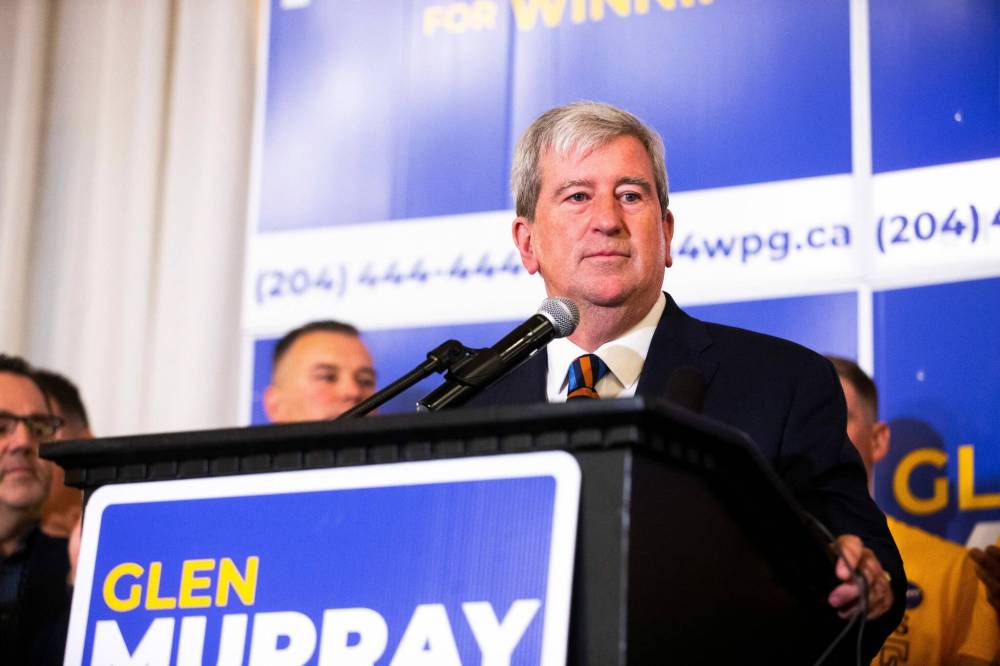
“As time went on, voters got to know the other candidates better because they’re out campaigning, so there’s a natural decline of that lead for Glen Murray, but also the news stories coming about the Pembina Institute furthered that decline,” said Adams.
After the July poll put him a distance second, Gillingham insisted he wouldn’t change his strategy.
“He had a very coherent, well thought out platform, and he was very clear how he was going to pay for (his promises),” said Aaron Moore, chair and associate professor of the University of Winnipeg’s political science department.
Murray’s pledges, meanwhile, were “getting all over the map,” noted Moore, after saying he wouldn’t raise taxes and then promising to increase the business tax.
The election unfolded as Adams expected, with four front-runners — Gillingham, Murray, Kevin Klein (14.78 per cent) and Shaun Loney (14.66 per cent) — and the seven other candidates in a second pack.
“I expected the second group to have more of a following than they did. They really were pushed into fringe candidate territory,” said Adams.
Robert-Falcon Ouellette (7.71 per cent) finished fifth, followed by Jenny Motkaluk (3.82 per cent) and Rana Bokhari (3.03 per cent).
Rick Shone (1.32 per cent), Don Woodstock (0.97 per cent), Idris Adelakun (0.65 per cent) and Chris Clacio (0.23 per cent) were also on the ballot.
Adams believes some of those who didn’t want to support Murray voted strategically for Gillingham. He suspects some Winnipeggers cast ballots for Loney because they thought Murray was safely ahead.
“This isn’t anything on Shaun Loney himself, but I think people who voted for Shaun Loney, many of them would have voted for Glen Murray if they thought it would have been a dogfight on election day,” he said.
Likewise, people on the centre-right who voted for Klein may have voted Gillingham if they knew how close the race was going to be, he noted.
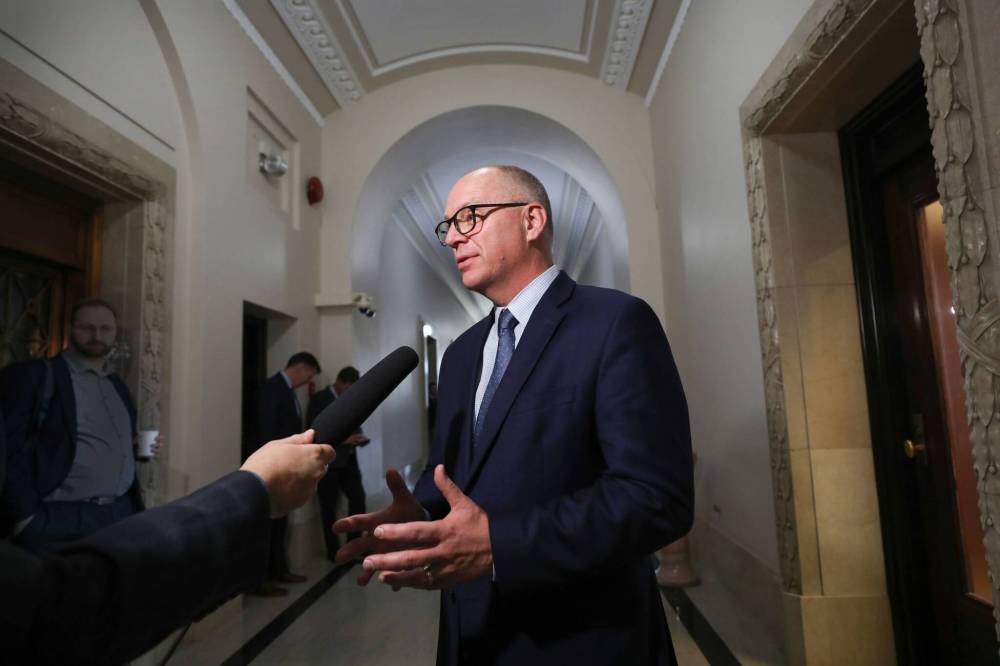
Adams and Moore expect Klein to resurface in politics. They were impressed by Loney’s showing.
“Shaun Loney is a rising star, either in the back rooms or the front rooms of the NDP,” said Adams.
As for Murray, a future in politics is unclear.
“He’s not in a great position at this point,” said Moore. “If his goal is to get back into politics, he’s already exhausted a lot of avenues. The question is if he continues to be interested in politics, if certain parties will be willing to take him on.”
“I’m sure he’s still got the political bug, and after he’s rested and explored his other options, we might see him come back somewhere in Canada,” said Adams.
— with files from Joyanne Pursaga and Carol Sanders
chris.kitching@freepress.mb.ca
Twitter: @chriskitching
As a general assignment reporter, Chris covers a little bit of everything for the Free Press.
Our newsroom depends on a growing audience of readers to power our journalism. If you are not a paid reader, please consider becoming a subscriber.
Our newsroom depends on its audience of readers to power our journalism. Thank you for your support.
History
Updated on Thursday, October 27, 2022 7:21 PM CDT: Shaun Loney spelling fixed








